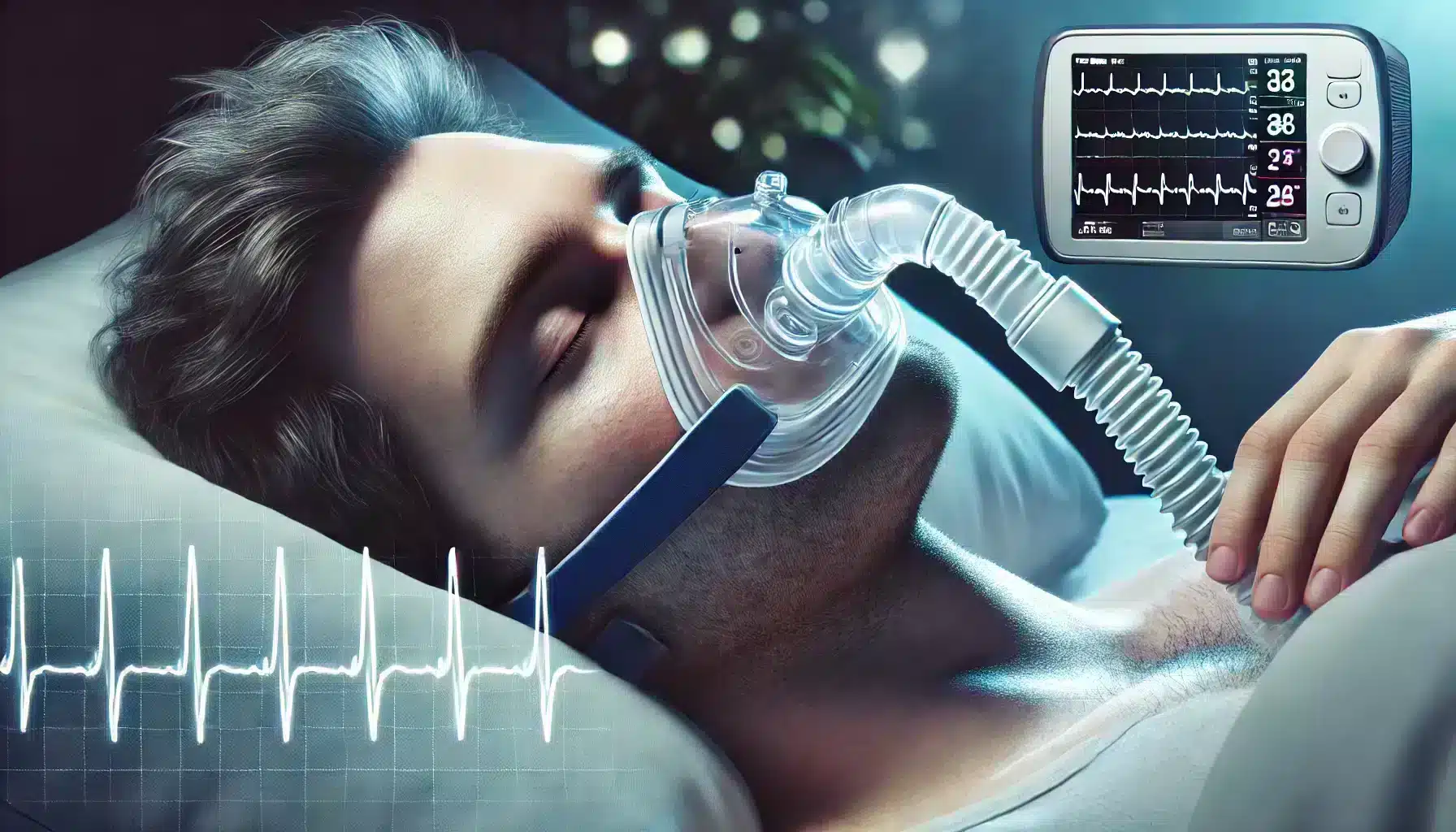What is Caffeine and How Does It Affect the Body?
Caffeine is a natural stimulant most commonly found in coffee, tea, and various energy drinks. It works by stimulating the central nervous system, helping you stay alert and preventing the onset of tiredness. This effect occurs because caffeine blocks adenosine, a neurotransmitter responsible for relaxation and sleepiness, from binding to its receptors in the brain.
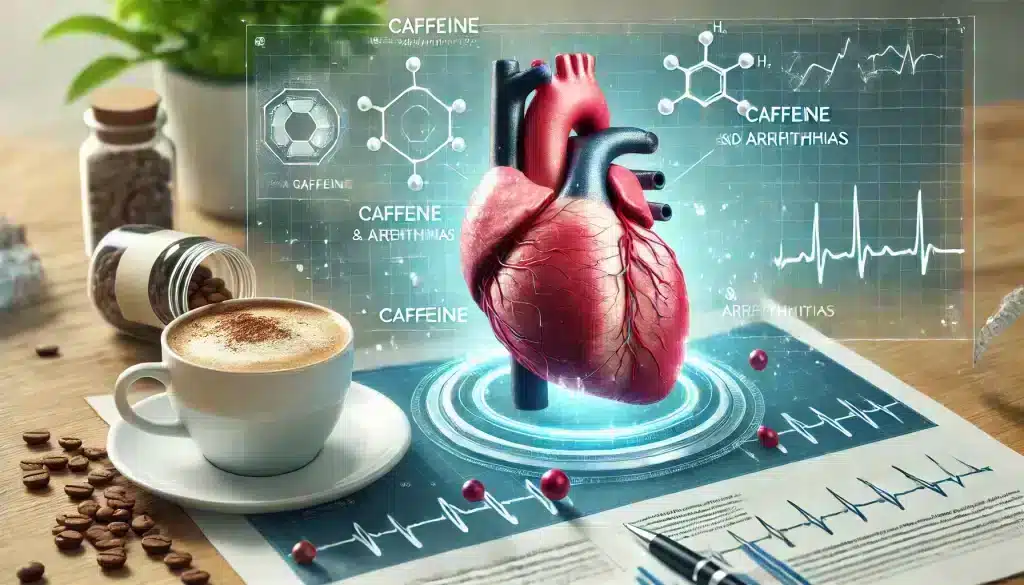
As a result, caffeine increases the production of adrenaline, which triggers a boost in energy levels and alertness. While small to moderate doses of caffeine can enhance mental focus and physical performance, higher doses can cause side effects like jitteriness, headaches, and increased heart rate. Over time, regular caffeine consumption may lead to tolerance, meaning you need more caffeine to achieve the same stimulating effects.
- Caffeine stimulates the central nervous system.
- It blocks adenosine receptors in the brain, reducing drowsiness.
- Increased adrenaline production leads to heightened alertness.
Understanding Heart Arrhythmias: Causes and Symptoms
Heart arrhythmias refer to irregular heartbeats that occur when the electrical signals that coordinate the heart’s rhythm are disrupted. This can cause the heart to beat too fast (tachycardia), too slow (bradycardia), or in an irregular pattern (fibrillation or flutter). While some arrhythmias are harmless, others can lead to severe complications such as stroke or heart failure if left untreated.
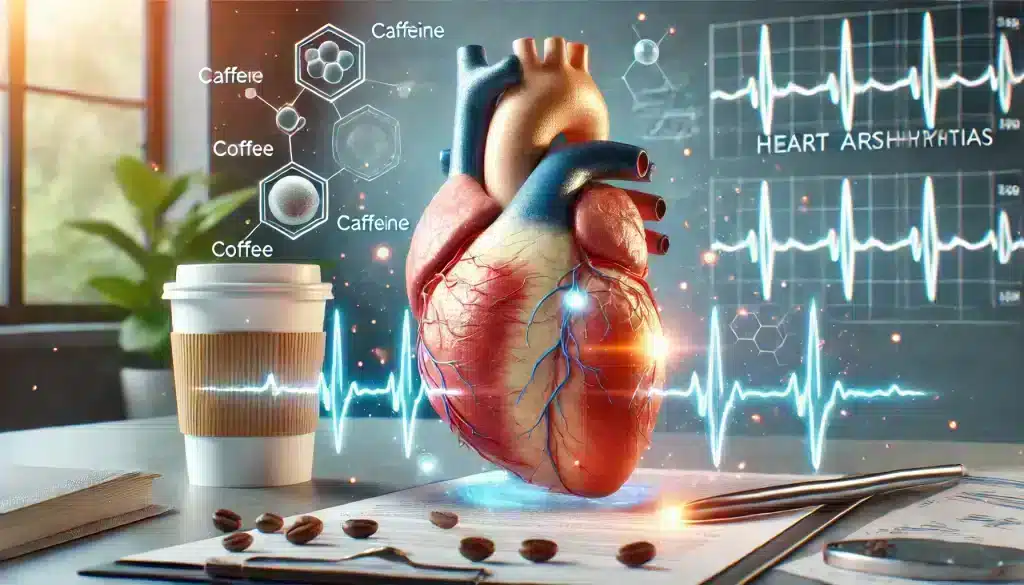
Arrhythmias can be triggered by a variety of factors, including underlying health conditions such as coronary artery disease, high blood pressure, or congenital heart defects. In some cases, external factors like excessive caffeine intake, alcohol consumption, stress, and smoking can also contribute to arrhythmias. Common symptoms include palpitations, dizziness, shortness of breath, and chest discomfort, although some individuals may not experience any symptoms at all.
- Arrhythmias are irregular heartbeats caused by disrupted electrical signals.
- They can lead to rapid, slow, or irregular heart rhythms.
- Common symptoms include palpitations, dizziness, and shortness of breath.
- Underlying health conditions or external factors, such as caffeine, can contribute to arrhythmias.
Can Caffeine Trigger Heart Arrhythmias?
Caffeine has long been thought to have a direct link to heart arrhythmias, mainly due to its stimulating effects on the central nervous system and the cardiovascular system. The stimulant increases heart rate and may temporarily cause irregular heart rhythms in sensitive individuals. However, research on caffeine’s role in directly causing arrhythmias remains inconclusive.

Several studies suggest that moderate caffeine consumption does not significantly increase the risk of developing arrhythmias in most people. In fact, some research indicates that regular coffee drinkers may actually have a lower risk of arrhythmias. Nonetheless, for individuals who already suffer from heart conditions or arrhythmias, even moderate caffeine intake might provoke episodes of irregular heartbeats.
- Caffeine can increase heart rate and stimulate irregular rhythms in sensitive individuals.
- Research on caffeine’s direct role in causing arrhythmias is inconclusive.
- Moderate caffeine consumption may not increase arrhythmia risk for most people.
The Science Behind Caffeine-Induced Arrhythmias
The mechanism through which caffeine can potentially induce heart arrhythmias is closely tied to its effects on the autonomic nervous system and cardiovascular function. Caffeine blocks adenosine receptors in the heart, which can affect the heart’s natural pacemaker cells responsible for regulating rhythm. This blockage can lead to an increase in heart rate and an elevation in blood pressure, both of which may contribute to arrhythmias, especially in individuals with underlying heart conditions.
Additionally, caffeine increases the release of norepinephrine, a stress hormone that triggers the “fight or flight” response, further contributing to the elevated heart rate. For some individuals, this overstimulation can cause palpitations or irregular heartbeats, particularly if they consume large amounts of caffeine within a short period. While healthy individuals may be able to metabolize caffeine more efficiently, those with pre-existing heart conditions may find themselves more susceptible to caffeine’s arrhythmic effects.
- Caffeine blocks adenosine receptors, which can disrupt heart pacemaker cells.
- It raises heart rate and blood pressure, potentially leading to arrhythmias.
- Caffeine also increases norepinephrine release, causing overstimulation of the heart.
Studies Linking Caffeine to Arrhythmias
Over the years, numerous studies have attempted to examine the relationship between caffeine consumption and heart arrhythmias. One large study published in the *Journal of the American College of Cardiology* found that moderate coffee intake (up to 300 mg of caffeine per day) was not associated with an increased risk of arrhythmias in healthy adults. In fact, some studies suggest that regular coffee consumption may have a protective effect against cardiovascular diseases.
On the other hand, certain smaller studies have indicated that high doses of caffeine may increase the likelihood of arrhythmias in individuals with pre-existing heart conditions, such as atrial fibrillation. However, these findings are not conclusive, and more research is needed to determine the exact relationship between high caffeine intake and arrhythmias in vulnerable populations.
- Moderate coffee consumption may not increase arrhythmia risk in healthy individuals.
- Some studies suggest that high caffeine intake could trigger arrhythmias in those with pre-existing conditions.
- More research is needed to establish a definitive link between caffeine and arrhythmias.
Factors That Influence the Impact of Caffeine on the Heart
The effect of caffeine on heart arrhythmias can vary significantly depending on several factors, including individual sensitivity to caffeine, existing health conditions, and interactions with medications. These factors can alter how caffeine affects the body and, consequently, the heart’s rhythm.
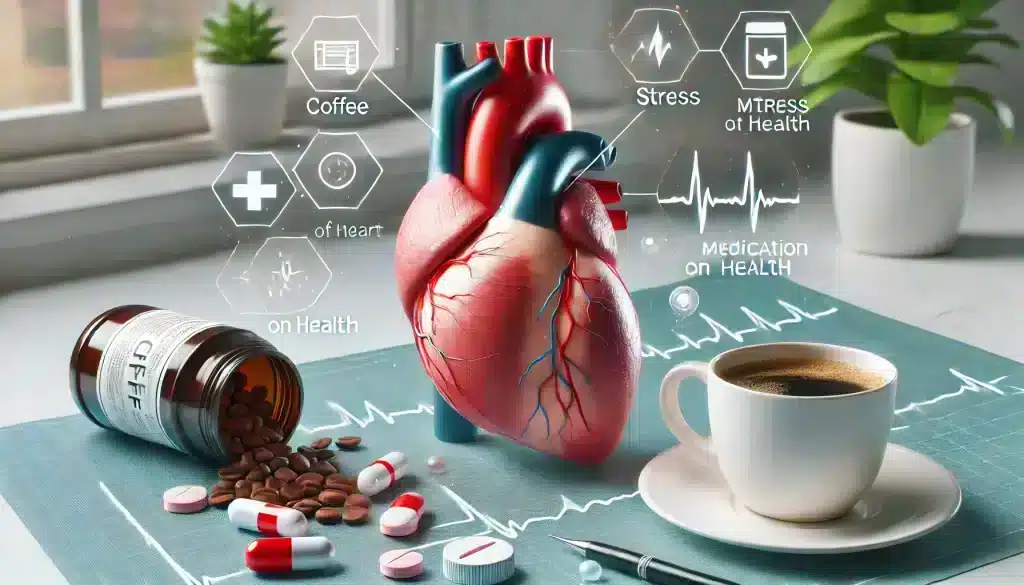
Understanding how these factors influence the body’s response to caffeine can help individuals make informed decisions about their consumption and mitigate the risks associated with caffeine-induced arrhythmias.
Caffeine Tolerance and Sensitivity
Caffeine tolerance varies widely among individuals. Some people can consume large amounts of caffeine with little to no noticeable effect on their heart rate, while others may experience palpitations or irregular heartbeats even after small amounts. This variability is often due to genetic differences that affect caffeine metabolism.
People with lower caffeine tolerance may be more susceptible to arrhythmias because their bodies process caffeine more slowly, leading to prolonged stimulation of the heart. In contrast, those with higher tolerance levels may metabolize caffeine quickly, reducing its impact on heart rhythms.
- Caffeine tolerance affects how the body reacts to caffeine’s stimulatory effects.
- Low-tolerance individuals may experience stronger cardiovascular effects, including arrhythmias.
- Genetics play a role in how efficiently caffeine is metabolized.
Other Health Conditions and Medication Interactions
Pre-existing health conditions can also amplify the effect of caffeine on heart rhythms. Individuals with conditions such as hypertension (high blood pressure), coronary artery disease, or heart arrhythmias may find that even moderate caffeine intake can exacerbate their symptoms. This is because caffeine can increase blood pressure and heart rate, which may lead to a higher risk of arrhythmias.
Furthermore, caffeine can interact with certain medications, including beta-blockers, which are commonly prescribed for heart conditions. Beta-blockers are designed to lower heart rate and reduce blood pressure, but caffeine’s stimulating effects can counteract these benefits, potentially leading to arrhythmias. It’s essential for individuals on such medications to consult their healthcare provider about their caffeine intake.
- Pre-existing conditions like hypertension or coronary artery disease can increase the risk of caffeine-induced arrhythmias.
- Caffeine may interact with medications like beta-blockers, reducing their effectiveness.
- Individuals with heart conditions should consult their healthcare provider about caffeine consumption.
Caffeine Consumption: What Does the Research Say?
Research on caffeine consumption and its effects on heart health is extensive but not entirely conclusive. While some studies indicate that moderate caffeine intake may not significantly increase the risk of heart arrhythmias, other research points to potential risks for individuals with certain heart conditions. Understanding these nuances is key to making informed decisions about caffeine consumption, especially for individuals concerned about their heart health.
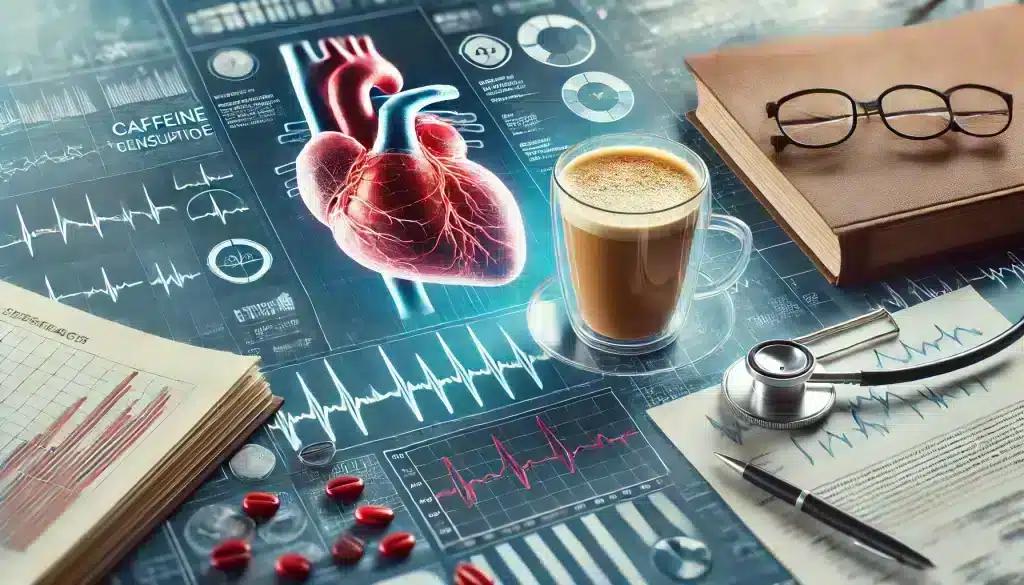
Below, we explore the recommended levels of caffeine intake, guidelines for individuals with heart arrhythmias, and what current research says about how much caffeine is safe for different populations.
Safe Levels of Caffeine Intake
The U.S. Food and Drug Administration (FDA) recommends that adults consume no more than 400 milligrams of caffeine per day, which is roughly equivalent to four cups of brewed coffee. This amount is generally considered safe for most people and is unlikely to cause adverse effects, including arrhythmias. However, individual tolerance and sensitivity to caffeine can vary, and some people may experience symptoms of overstimulation, such as palpitations, at much lower doses.
For pregnant women, the recommended limit is lower, around 200 milligrams per day, as high caffeine intake during pregnancy can affect both the mother and the developing fetus. Similarly, individuals with pre-existing heart conditions or arrhythmias may need to restrict their caffeine intake further, as even moderate levels could provoke irregular heart rhythms.
- The FDA recommends a maximum of 400 milligrams of caffeine per day for most adults.
- Pregnant women and those with heart conditions should consume less than 200 milligrams per day.
- Caffeine tolerance varies, and some individuals may need to adjust their intake accordingly.
Guidelines for Individuals with Heart Arrhythmias
For individuals diagnosed with heart arrhythmias, managing caffeine intake is critical. Since caffeine can stimulate the heart and potentially trigger irregular rhythms, it’s advisable for such individuals to limit their consumption or avoid caffeine entirely. Healthcare providers often recommend tracking caffeine intake from all sources, including coffee, tea, chocolate, and certain medications, to ensure total consumption stays within safe limits.
In some cases, individuals with arrhythmias may tolerate small amounts of caffeine without adverse effects, but it’s essential to monitor symptoms closely. If palpitations, dizziness, or chest discomfort arise after consuming caffeine, reducing intake or eliminating it from the diet may be necessary. Consulting with a cardiologist is important for developing a personalized approach to caffeine consumption for those at risk of arrhythmias.
- Individuals with arrhythmias should limit or avoid caffeine consumption.
- Monitoring symptoms after caffeine intake can help assess sensitivity.
- Consultation with a healthcare provider is crucial for personalized guidelines.
How to Manage Caffeine Intake for Heart Health
For those concerned about the impact of caffeine on their heart health, especially individuals prone to arrhythmias, there are several strategies to manage caffeine intake. It is essential to find a balance between enjoying caffeinated beverages and protecting heart health, particularly when dealing with an existing heart condition.

Below are practical tips for managing caffeine consumption while minimizing the risk of arrhythmias and other cardiovascular complications.
Reducing Caffeine-Related Arrhythmia Risks
One of the most effective ways to reduce the risk of arrhythmias related to caffeine consumption is to limit the total amount of caffeine consumed daily. For those with a history of arrhythmias or sensitivity to caffeine, cutting back gradually can help prevent withdrawal symptoms, such as headaches and irritability. Start by reducing caffeine intake by 25-50 mg per day until reaching a level that doesn’t trigger irregular heart rhythms.

Additionally, it is essential to be mindful of hidden sources of caffeine in foods, energy drinks, and medications. Switching to decaffeinated versions of coffee or tea can also help maintain a lower intake without sacrificing the enjoyment of these beverages. Monitoring heart rate and symptoms after consuming caffeine is another effective way to manage its impact on heart health.
- Gradually reduce caffeine intake to avoid withdrawal symptoms.
- Be mindful of hidden sources of caffeine in foods and medications.
- Switch to decaffeinated beverages to reduce caffeine intake.
- Monitor symptoms and heart rate after consuming caffeine.
Substitutes for Caffeine
For those who want to reduce or eliminate caffeine from their diet due to heart health concerns, several alternatives can provide similar benefits without the associated risks. Herbal teas, for example, can offer a flavorful and caffeine-free alternative to traditional tea and coffee. Some herbal teas, such as chamomile and peppermint, may even promote relaxation and help lower stress, reducing the risk of arrhythmias.
Additionally, increasing water intake throughout the day can help boost energy levels naturally, without the need for stimulants. For individuals seeking a gentle energy boost, ginseng or adaptogenic herbs like ashwagandha can serve as natural alternatives that are less likely to cause heart-related side effects. It’s important to consult with a healthcare provider before trying new supplements, especially for those with pre-existing heart conditions.
- Herbal teas like chamomile or peppermint provide caffeine-free alternatives.
- Increased water intake can help maintain energy levels naturally.
- Natural supplements like ginseng or ashwagandha may offer a gentler energy boost.
- Consult a healthcare provider before using new supplements, especially with heart conditions.
Conclusion: Should You Avoid Caffeine for Heart Health?
Whether or not you should avoid caffeine depends largely on your individual health profile and tolerance to caffeine. For most healthy individuals, moderate caffeine consumption is unlikely to cause significant heart problems, including arrhythmias. In fact, some studies even suggest that regular coffee consumption may offer certain cardiovascular benefits. However, for those with pre-existing heart conditions or a history of arrhythmias, caution is warranted.
Consulting with a healthcare provider can help you determine the safest level of caffeine intake based on your personal health needs. In some cases, it may be necessary to reduce or eliminate caffeine to prevent triggering arrhythmias, while in others, moderate intake may be safe. Paying attention to your body’s signals and making adjustments as needed can help ensure that you enjoy the benefits of caffeine without compromising your heart health.
- Most healthy individuals can safely consume moderate amounts of caffeine.
- Individuals with heart conditions or arrhythmias should consult with a healthcare provider.
- Monitor your body’s response to caffeine and adjust your intake accordingly.
Final Thoughts on Caffeine and Heart Arrhythmias
Caffeine is a widely consumed stimulant with both benefits and potential risks. While most people can enjoy caffeine without concern, those with heart arrhythmias or other cardiovascular conditions may need to be more cautious. Understanding how caffeine affects your body and working with your healthcare provider to manage your intake is essential for maintaining both heart health and overall well-being.
By following the guidelines outlined in this article and paying attention to your individual response to caffeine, you can make informed decisions that support your heart health while still enjoying your favorite beverages in moderation.


